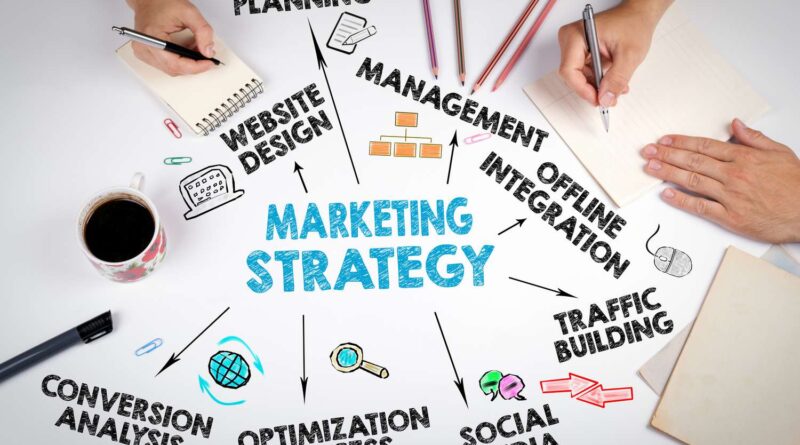Discover Effective Modern Marketing Strategies for 2025
As we approach 2025, the marketing landscape continues to evolve at an unprecedented pace. With advancements in technology, shifts in consumer behavior, and the growing importance of data, businesses must adapt their marketing strategies to stay competitive. In this article, we will explore effective modern marketing strategies that can help businesses thrive in 2025 and beyond.
The Changing Landscape of Marketing
The Digital Transformation
Over the past decade, digital transformation has reshaped how brands interact with consumers. From social media to e-commerce, businesses are leveraging digital platforms to reach their audiences more effectively. In 2025, this trend will only intensify, requiring brands to adopt innovative strategies to engage consumers.
The Rise of Personalization
Consumers today expect personalized experiences tailored to their individual preferences. This shift towards personalization means that businesses must invest in understanding their audiences deeply. Modern marketing strategies will increasingly rely on data analytics to deliver targeted content and offers.
Emphasis on Sustainability
As consumers become more environmentally conscious, brands must align their marketing strategies with sustainable practices. In 2025, companies that prioritize sustainability in their messaging and operations will likely gain a competitive edge.
Effective Modern Marketing Strategies for 2025
1. Data-Driven Marketing
Overview: Data-driven marketing involves using data analytics to inform marketing decisions and optimize campaigns. By harnessing the power of data, businesses can understand customer behavior and preferences.
Implementation:
- Customer Analytics: Utilize analytics tools to track customer interactions and gather insights about their preferences.
- Segmentation: Segment your audience based on demographics, behaviors, and interests to create targeted campaigns.
Benefits:
- Improved targeting leads to higher conversion rates.
- Enhanced customer insights enable better decision-making.
2. AI and Automation
Overview: Artificial intelligence (AI) and marketing automation are transforming how brands operate. These technologies can streamline processes, enhance personalization, and improve customer experiences.
Implementation:
- Chatbots: Implement AI-powered chatbots to provide instant customer support and assist with inquiries.
- Automated Campaigns: Use automation tools to schedule and manage marketing campaigns across multiple channels.
Benefits:
- Increased efficiency allows teams to focus on strategic initiatives.
- Personalized experiences enhance customer satisfaction.
3. Content Marketing Evolution
Overview: Content marketing remains a cornerstone of modern marketing strategies. However, the format and delivery of content are evolving. In 2025, brands will need to adapt their content strategies to meet changing consumer preferences.
Implementation:
- Interactive Content: Create quizzes, polls, and interactive infographics to engage audiences and encourage participation.
- Video Content: Invest in high-quality video production, as video content continues to dominate engagement metrics.
Benefits:
- Engaging content fosters deeper connections with audiences.
- Improved SEO and organic reach through valuable content.
4. Omnichannel Marketing
Overview: Omnichannel marketing ensures a seamless customer experience across all touchpoints, including websites, social media, email, and in-store experiences. In 2025, a cohesive omnichannel strategy will be crucial for success.
Implementation:
- Integrated Campaigns: Coordinate marketing efforts across channels to deliver consistent messaging.
- Cross-Channel Analytics: Use analytics to track customer journeys across different platforms.
Benefits:
- Enhanced customer experience increases satisfaction and loyalty.
- Improved data collection leads to better insights.
5. Influencer Marketing 2.0
Overview: Influencer marketing continues to be a powerful strategy, but it is evolving. In 2025, brands will need to focus on authenticity and long-term partnerships with influencers to drive real engagement.
Implementation:
- Micro and Nano Influencers: Collaborate with influencers who have smaller but highly engaged audiences for more authentic connections.
- Long-Term Relationships: Build ongoing partnerships with influencers to create authentic brand stories.
Benefits:
- Increased trust and credibility through authentic endorsements.
- Higher engagement rates with niche audiences.
6. Video Marketing and Live Streaming
Overview: Video content consumption continues to rise, making it essential for brands to incorporate video marketing into their strategies. Live streaming, in particular, offers unique opportunities for real-time engagement.
Implementation:
- Live Events: Host live Q&A sessions, product launches, or behind-the-scenes content to engage your audience directly.
- Short-Form Video: Leverage platforms like TikTok and Instagram Reels to create quick, engaging videos.
Benefits:
- Increased engagement through dynamic and visually appealing content.
- Higher conversion rates from effective storytelling.
7. Social Commerce
Overview: Social commerce combines social media and e-commerce, enabling brands to sell directly through social platforms. This trend is expected to grow significantly by 2025.
Implementation:
- Shoppable Posts: Utilize features on platforms like Instagram and Facebook to create shoppable posts that link directly to your products.
- User-Generated Content: Encourage customers to share their purchases and experiences on social media.
Benefits:
- Streamlined purchasing process enhances customer convenience.
- Increased brand visibility through social sharing.
8. Sustainability and Ethical Marketing
Overview: With growing consumer awareness about environmental issues, brands must incorporate sustainability into their marketing strategies. In 2025, ethical marketing will be a key differentiator.
Implementation:
- Transparent Practices: Communicate your sustainability efforts clearly through marketing materials and product descriptions.
- Cause Marketing: Partner with environmental organizations or support social causes that resonate with your audience.
Benefits:
- Enhanced brand loyalty from consumers who value sustainability.
- Positive brand image and reputation in the marketplace.
Conclusion
As we look ahead to 2025, the landscape of marketing will continue to evolve. By adopting effective modern marketing strategies, businesses can not only stay competitive but also create meaningful connections with their audiences. Emphasizing data-driven decision-making, personalization, and sustainability will be crucial for success in this ever-changing environment.
Investing in innovative marketing approaches will enable brands to navigate challenges and leverage opportunities, ensuring they remain relevant and impactful in the years to come.Read More



